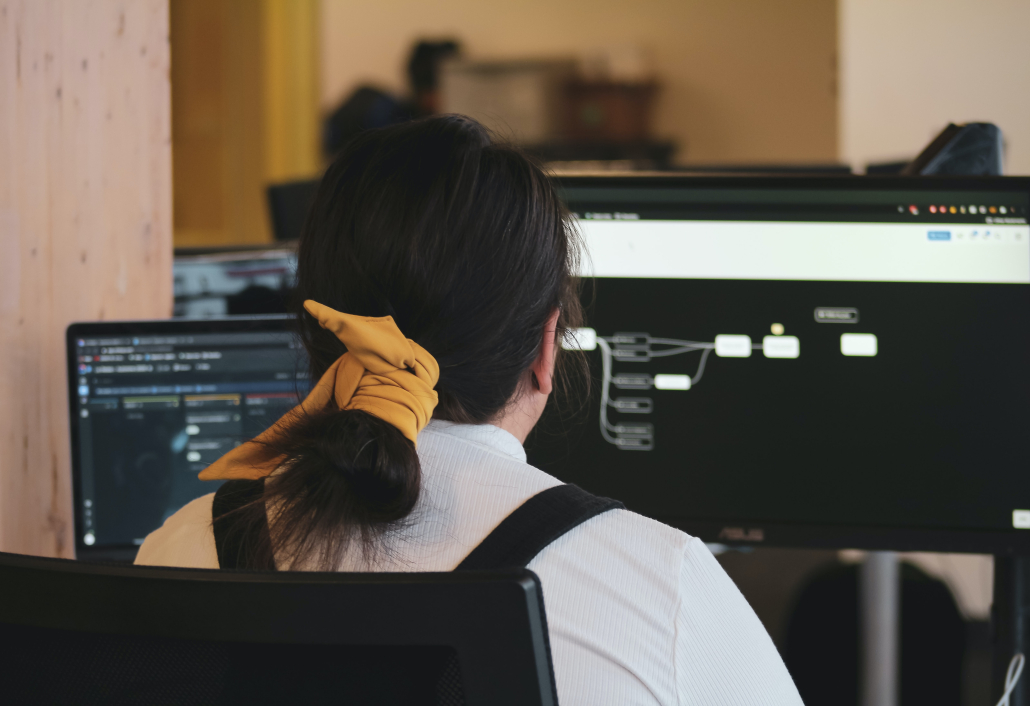The start to a new era of education is just around the corner

Although the re-normalization of the in-person school year makes Zoom University seem like ages ago, the repercussions of online learning still linger. Room scan software, which was widely adopted by universities, schools and other institutions for test-proctoring purposes over the pandemic, was officially ruled unconstitutional Aug. 22.
The privacy risk regarding room scan software was brought up by Aaron Ogletree, a student at Cleveland State University. According to NPR, Ogletree sued his university, stating that it is unconstitutional to have a room scan as part of the proctoring measure before his online test. In response to this, U.S. district court Judge J. Philip Calabrese concluded that the room scan is unreasonable under the Fourth Amendment.
Ogletree is not the only student who has felt concerned about the privacy violations room scanning software poses. Ever since universities moved completely online in response to the pandemic and started using e-proctoring software, students across the nation found themselves frantically ensuring that their rooms were spick and span, and the fan-fiction on their desk was not mistaken for their notes. While universities such as Cleveland State and USC argued that such measures established a sense of fairness and academic integrity, students didn’t have control over parents barging into their rooms or their siblings yelling through the walls.
According to YR media, students have an additional stressor as the recorded data usually have years-long retention periods. This data, if not stored and protected properly by the e-proctoring company, may lead to security and privacy risks.
Vice writers Todd Feathers and Janus Rose provided additional insight on what exactly an e-proctoring software can access once students start to use it on their computers, stating, “The software turns students’ computers into powerful invigilators — webcams monitor eye and head movements, microphones record noise in the room, and algorithms log how often a test taker moves their mouse, scrolls up and down on a page and pushes keys. The software flags any behavior its algorithm deems suspicious for later viewing by the class instructor.”
But how can a software distinguish test anxiety from suspicious behavior when the program was mathematically designed to represent the “perfect” or “ideal” student? Spoiler alert: It can’t.
In an interview with Vice, Shea Swauger, an educational technology researcher at the University of Colorado Denver’s Auraria Library said, “anything outside of that ideal is treated with suspicion,” and cognitive and physical disabilities don’t make the cut amongst these ideal testing behavior traits.
As we remain in limbo with the pandemic, hybrid models of learning and testing continue to be ingrained in many classes to promote accessibility and public health. With this, many professors are finally breaking away from the anxiety-inducing, reductive, standardized exams and finding new ways to analyze how well students are retaining class material. Duke University’s learning innovation blog suggests giving students formative questions that require them to make analyses instead of providing a single correct answer. From individual projects to short writing essays, there are several ways educators can ensure academic integrity outside of a proctored exam.
Nonetheless, even if the pandemic never occurred and we never enrolled in Zoom University, timed, closed book exams should be a thing of the past. Not only does it fail to engage students with the material, but it is also the very definition of inequitable.
Research conducted by the University of Wisconsin-Madison Department of Psychology empirically proved that time-limited tests don’t work. This isn’t just a myth or students complaining about their classes. The current majority of “testing” is scientifically proven not to work.
So, to all USC professors: Let’s break out of that old-fashioned unreliable shell and blossom into a new era of education where we put students’ privacy and education first.

